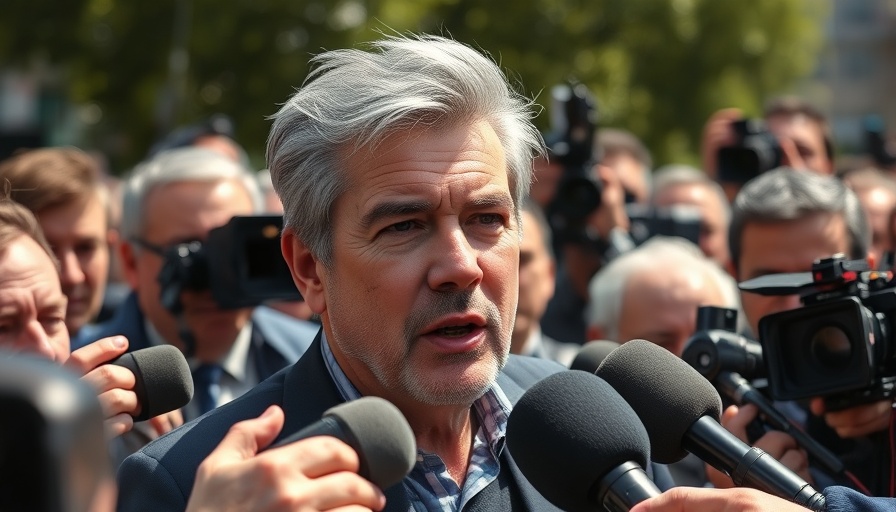
The Kilmar Abrego Garcia Case: A Flawed System Under Scrutiny
The case of Kilmar Abrego Garcia has thrust immigration policy back into the limelight, pulling Democrats into a contentious debate that centers around fundamental American values such as due process, justice, and equality. Abrego Garcia, a Salvadoran man mistakenly deported to El Salvador by the Trump administration, symbolizes the fight against government overreach, as officials and advocates rally around his case to highlight perceived injustices in the U.S. immigration system.
Understanding the Impact of Abrego Garcia's Case
The deportation of Abrego Garcia ignited a wave of reactions across the political spectrum. Maryland Sen. Chris Van Hollen, who visited El Salvador, emphasized the need for rectitude in immigration enforcement, expressing concern over how the Trump administration has handled cases like Garcia's. For Democrats, this is about more than just one man’s life; it represents a broader struggle to uphold rights that every individual—regardless of immigration status—should be entitled to under the law.
Democratic Pushback against Trump’s Narrative
In a climate where immigration has been a hot-button issue, Democrats are beginning to coalesce around the narrative that protecting immigrants’ rights is inextricably linked to protecting American values. Democratic Rep. Adriano Espaillat, chair of the Congressional Hispanic Caucus, stated, “Without due process for all, we are all in danger.” This proclamation underscores a growing awareness among Democrats that to regain ground on immigration issues, they must defend the principles of justice and fairness that have traditionally characterized their platform.
The Political Landscape: Democrats Divided
Earlier this year, the Democrat party faced internal divisions regarding immigration. As the party struggled to unify after a contentious electoral season, the wrongful deportation of Abrego Garcia provided a rallying point. It served as a reminder of the challenges facing those who are often caught in the crossfire of harsh immigration policies. With Trump framing this narrative around danger and criminality, Democrats are using Abrego Garcia's story as a counter-narrative, appealing to a sense of empathy and justice.
Examining Public Sentiment and the Role of Media
The media plays a crucial role in shaping public perception about figures like Kilmar Abrego Garcia. Coverage that humanizes immigrants—as opposed to simply labeling them as criminals—can significantly impact public opinion. Investigative reports have highlighted the missteps of immigration enforcement, while trending topics on social media are fostering dialogues that challenge the status quo.
The Future of Immigration Policy: What Lies Ahead
Looking forward, the Abrego Garcia case may signal a shift in how immigration policy debates are perceived. The Supreme Court's ruling that mandated his return to the U.S. could serve as a precedent that influences future immigration cases. As the Trump administration continues to position itself against perceived threats from foreign nationals, Democrats are strategically leveraging stories of wrongful deportations to galvanize support from the public.
Final Thoughts: Why This Debate Matters
The case of Kilmar Abrego Garcia is more than just a political story; it reflects the underlying tensions in American society regarding issues of justice and immigration. For Central Florida residents, this case resonates deeply as local communities might also face similar challenges. Understanding the nuances of these debates is critical for those who care about the future of immigration in the United States.
As more voices join the conversation, it may be worth considering how local perspectives can shape the national discourse on immigration. Keeping informed on immigration policies, and advocating for justice and fairness can empower community members to engage meaningfully in these important discussions.
 Add Row
Add Row  Add
Add 






Write A Comment